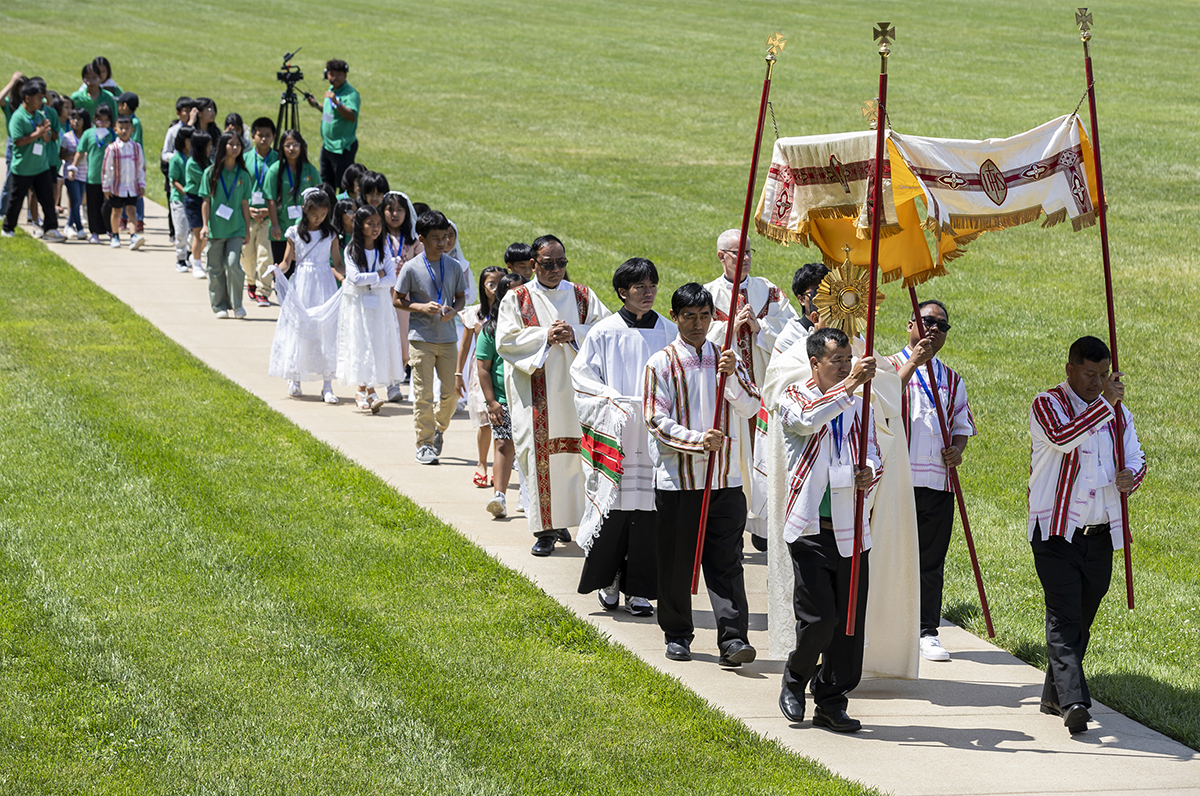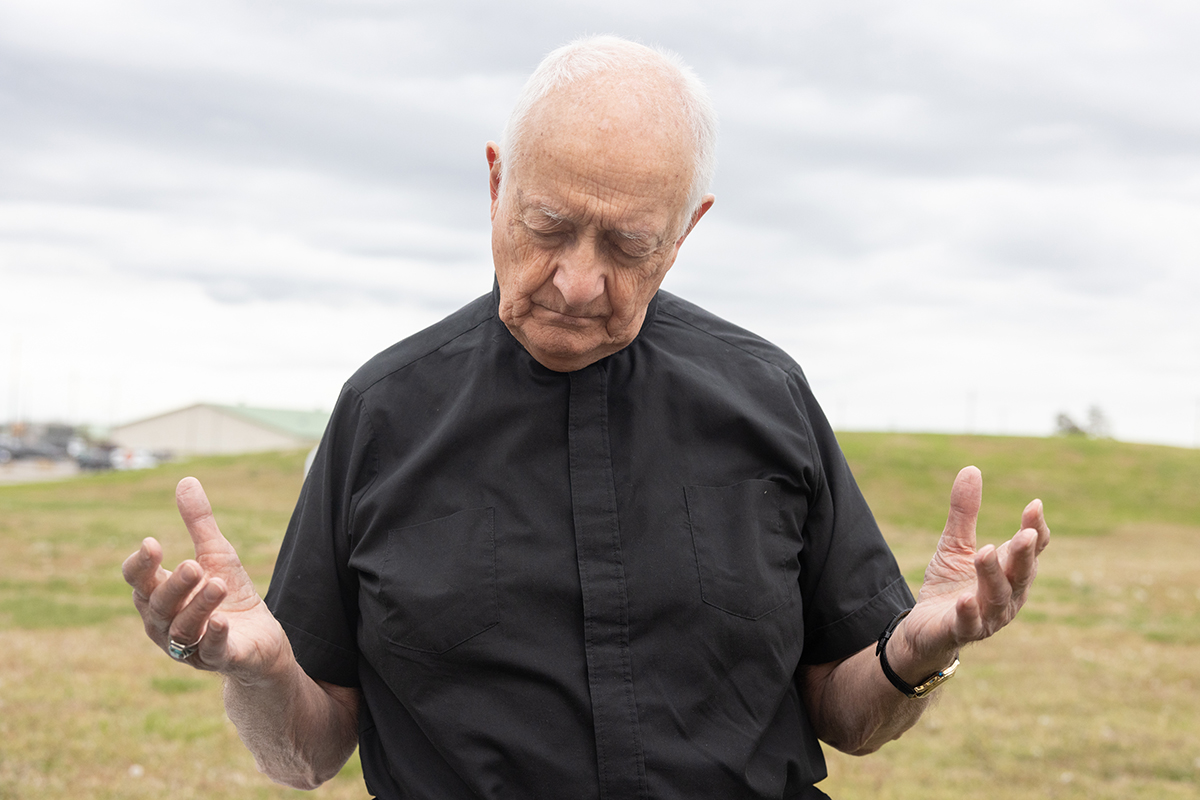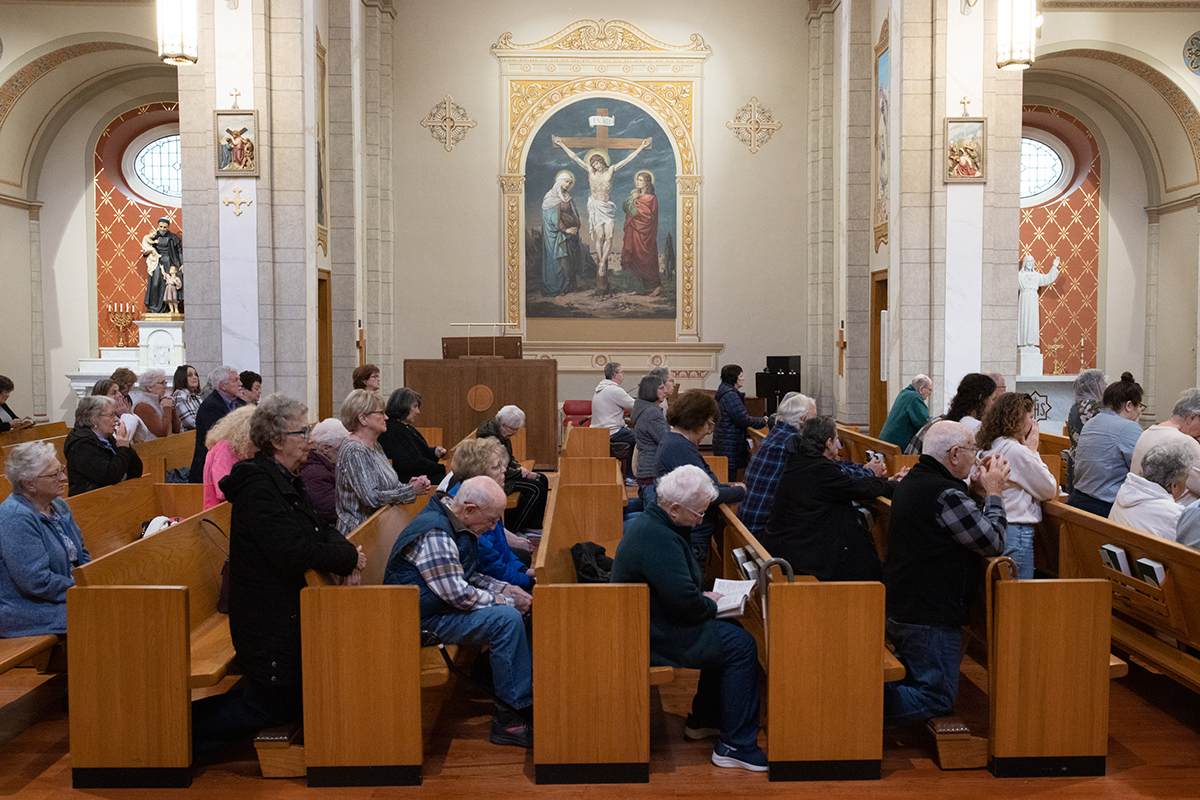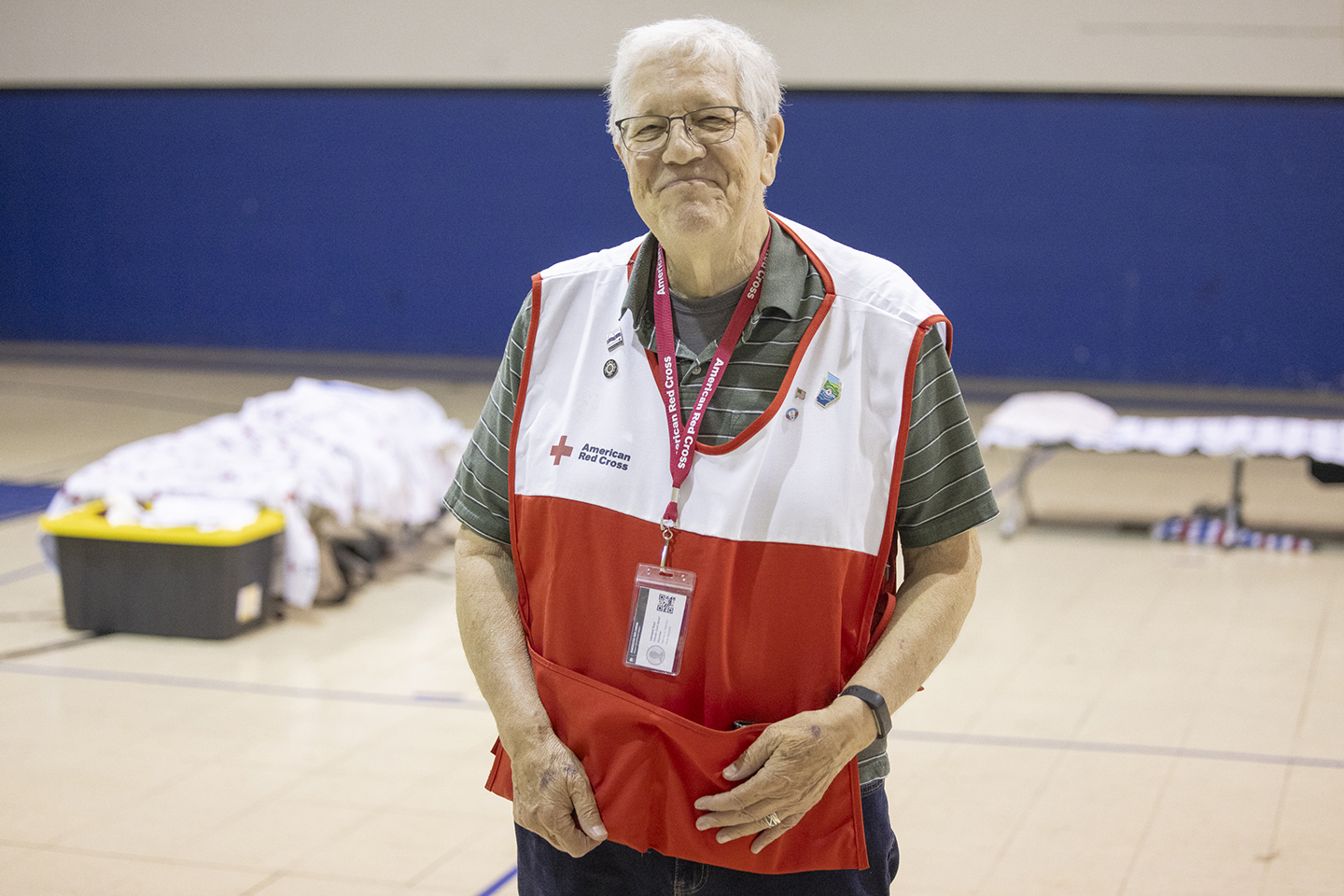Sister Michelle Salois is helping fill a gap in much-needed mental health services among immigrant community in St. Louis
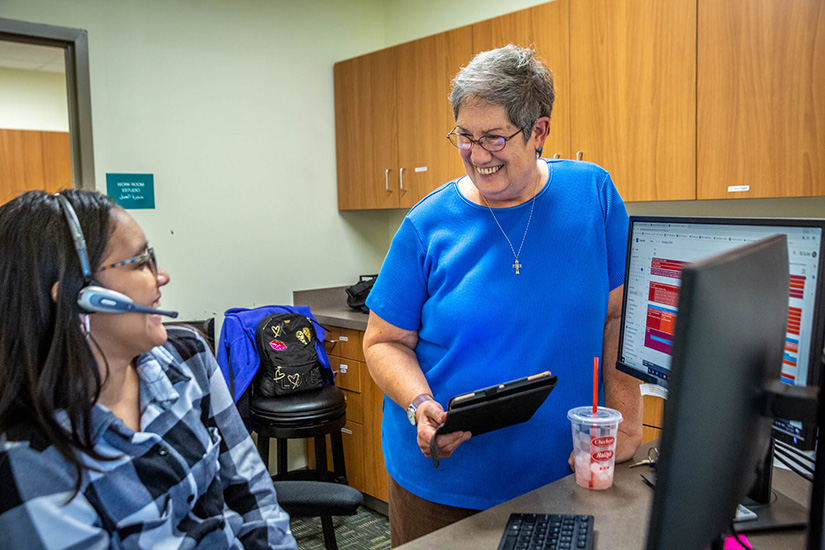
Sister Michelle Salois among nearly two dozen providers bridging need for mental health carethrough partnership with Casa de Salud
Catherine McAuley, the founder of the Sisters of Mercy, once said that “there are things the poor prize more highly than gold, though they cost the donor nothing. Among these are the kind word, the gentle, compassionate look, and the patient hearing of their sorrows.”
It’s a thought that Sister of Mercy Michelle Salois carries close to her as she provides mental health services to the poor and uninsured in St. Louis. A clinical social worker and family therapist for three decades, Sister Michelle and her practice, Mercy Professional Services, have been part of the Mental Health Collaborative at Casa de Salud since 2018.
Housed in a building next door to Casa de Salud in Midtown St. Louis, the collaborative has 18 provider partners, including Mercy Professional Services, St. Francis Community Services, the SLU Medical Family Therapy Program, as well as other organizations and individual therapists. Among its goals, the collaborative seeks to expand the capacity of the mental health system in St. Louis and provide services to underserved and foreign-born communities, with a particular emphasis on Latinos.
Casa de Salud, which will mark its 10th anniversary in January, offers primary health care to the immigrant community in St. Louis, especially uninsured Latinos. The organization was founded in partnership with Saint Louis University, which provided the building where Casa still operates. SLU donated the use of the building next door where the Mental Health Collaborative is housed. Casa’s services also include case management, care coordination and home health visits.
Sister Michelle described the collaborative as an effort to provide better access to mental health services to a population that often finds barriers to accessing counseling. Speaking in general terms, she said that clients face many of the same issues that non-foreign-born clients would — depression, anxiety, and problems with relationships, for example.
But in digging deeper, Sister Michelle noted that there may be other underlying issues that led them to flee their home country for the United States, such as a family member threatened by gang violence. Some may be escaping trauma and torture. “And then they come here, and they can be mistreated within the jobs they find here,” she said. “The levels of stress are mindblowing.”
Since it opened a year and a half ago, the Mental Health Collaborative has seen about 500 unique clients, according to coordinator Ben Zeno. Of that caseload, about 75% are immigrants born outside of the United States. On average, a client makes about seven visits over a two-month period.
The model for the collaborative includes giving providers rent-free space to meet with clients, with Casa de Salud taking care of the screening and outcome statistics, receptionist staffing, office equipment and interpreting services. In exchange, providers agree to dedicate at least 25 percent of their caseload to clients referred from Casa de Salud who are either uninsured or otherwise cannot pay. Casa offers to pay for Uber rides so clients can get to their appointments.
Casa de Salud president Jorge Riopedre said that research shows that immigrants and refugees have a higher percentage of cases of trauma and post-traumatic stress syndrome than the average population. “There’s an extraordinary need for these services,” Riopedre said. “We want to offer these services as holistically as possible.”
In addition to working individually with clients, Sister Michelle also supervises student practitioners. In fiscal year 2019, her student therapists saw 162 clients and provided 681 hours of therapy. Sister Michelle’s caseload included 54 clients, with 876 hours of therapy and supervision of student practitioners.
Riopedre noted that piece is essential, as it’s helping to build a future generation of therapists, ultimately providing greater access to mental health care. “Hopefully, it’s instilling a mindset of community and cultural awareness in the mental health field,” he said. “We hope this will have a long-term impact.”
Catherine McAuley, the founder of the Sisters of Mercy, once said that “there are things the poor prize more highly than gold, though they cost the donor nothing. Among these … Sister Michelle Salois is helping fill a gap in much-needed mental health services among immigrant community in St. Louis
Subscribe to Read All St. Louis Review Stories
All readers receive 5 stories to read free per month. After that, readers will need to be logged in.
If you are currently receive the St. Louis Review at your home or office, please send your name and address (and subscriber id if you know it) to subscriptions@stlouisreview.com to get your login information.
If you are not currently a subscriber to the St. Louis Review, please contact subscriptions@stlouisreview.com for information on how to subscribe.

